Victor Lacken is a photographer and communications delegate with the International Federation of Red Cross and Red Crescent Societies, who has just begun a three-month stay in Monrovia, Liberia. He shared with us his photos documenting the world's worst Ebola outbreak, and also shared with us some of the things he's observed so far.
HuffPost: What is your general impression of the situation in Monrovia so far?
Lacken: It's a serious situation here, and it's not under control yet. It's getting worse, especially in Liberia, which has more than half of the deaths from Ebola. The mood is serious, but life goes on, and people know that there's a situation.
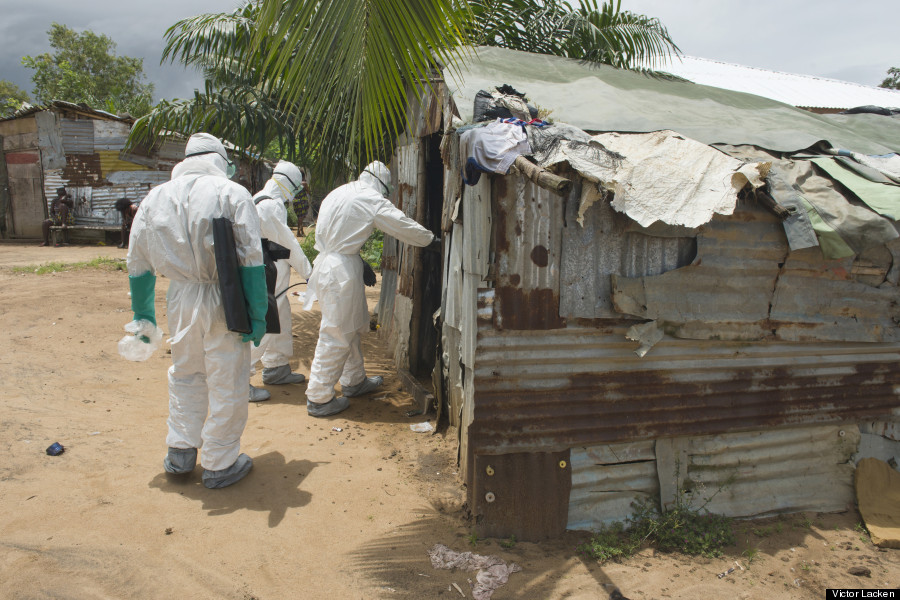
Liberia National Red Cross Society volunteers in protective clothing enter the home of an Ebola victim in Banjor, Liberia to remove her body.
Before I arrived, in the early months [of the outbreak], there was a lot of denial and resistance and disbelief [among people living here], because Ebola has never been here before. People didn't believe it. But the message is out there now, it's all over Monrovia now. You see it on billboards, posters, radio, on T-shirts, it's everywhere -- the message that Ebola is real, and secondly, that it's survivable, and thirdly, you can do things to prevent it.
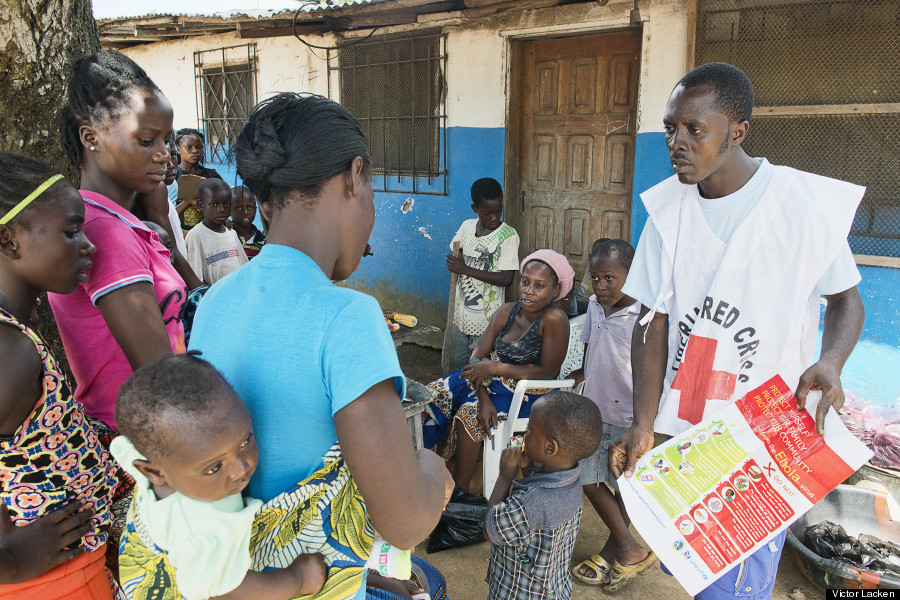
A Liberian Red Cross volunteer explains to members of the Crab Hole community in Monrovia the dangers of the Ebola virus and how they can minimize the risks to their health. Social mobilization is a key plank in the Red Cross strategy to combat the spread of Ebola which has already claimed more than 1,200 lives in Liberia.
What are some widespread measures aiming to help curb the outbreak?
There are handwashing stations everywhere. If you want to go into any public meeting place, a hotel, shop, any workplace, there is a large bucket outside with a tap on it that is filled with chlorinated water. Everybody is expected to wash their hands. Also, places are doing temperature checks to see if you're showing any signs of fever. It's like a little gun that you point at your temple to get a reading of your temperature. And if you're showing any signs of fever, you might not be allowed in. Ebola is only contagious when you're showing symptoms -- so if you're not showing any symptoms, you're not contagious. They're just trying to monitor it, as anyone who's sick should be identified and they shouldn't be contaminating everybody else.
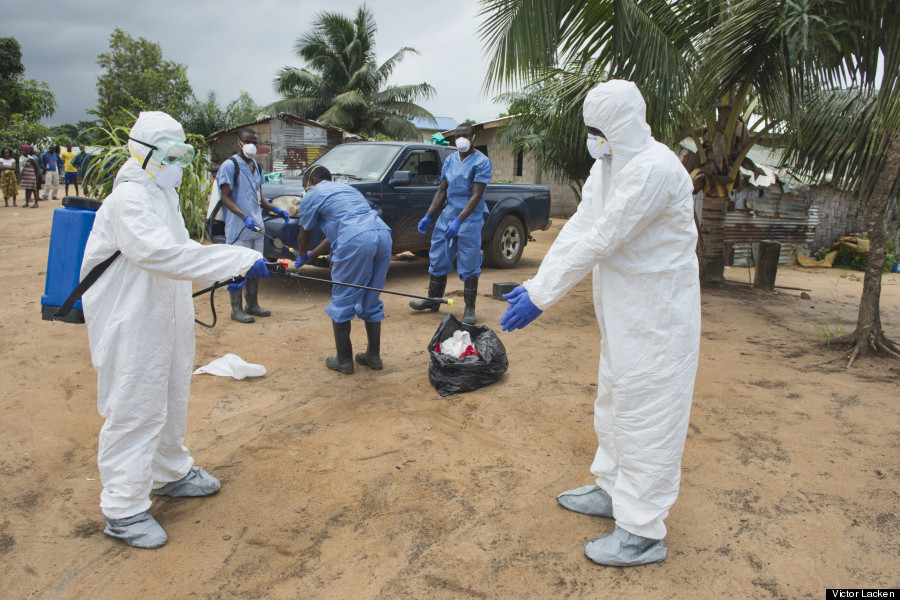
Liberia National Red Cross Society volunteers disinfect their protective clothing after removing the body of an Ebola victim from her home in Banjor, Liberia.
What are some of the biggest challenges to the health system?
Treatment centers are overwhelmed. They've only got limited space, and the number of people who are infected is growing. The systems are overwhelmed at the moment. For every Ebola patient, it takes three medical workers to look after them. And they all have to be properly dressed. So what happens is people arrive at a treatment center, and maybe they can't get in, or maybe they're sent home with a medical kit. And sometimes, if they're too sick to go any further, they just lie down.
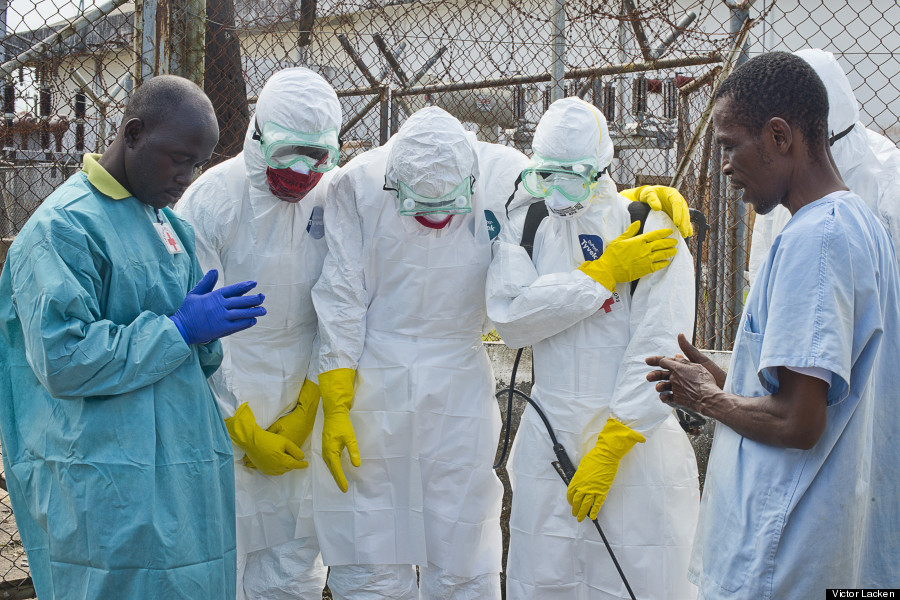
Friday Kiyee, head of the Red Cross Dead Body Management team in Monrovia, Liberia, leads his team in prayer before removing the body of a woman from her home in West Point, Monrovia. The DBM team is responsible for the collection and disposal of human remains infected with the deadly Ebola virus.
The media is fond of portraying very dramatic images of the Ebola outbreak -- say, bodies of victims lying in the streets. Would you say this is an accurate depiction of what everyday life is like there?
The press tends to hang outside these treatment centers and see the worst of what's happening here. But it's not like that's all over the place, it's not armageddon. But it is a serious situation. People are advised not to touch dead bodies.
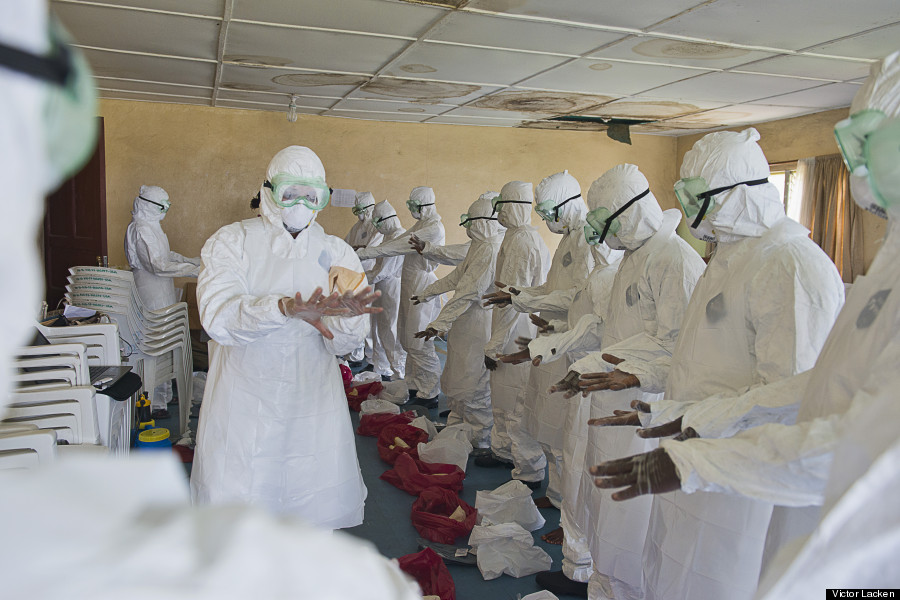
New recruits to the Liberian Red Cross Dead Body Management team undergo training in Monrovia. The Red Cross is increasing the number of DBM teams active in Liberia to cope with rising fatalities caused by the deadly Ebola virus.
What about daily life in Monrovia? Do people seem to be preoccupied with Ebola, or is it life as usual?
It varies. In the city you can walk around here, and you see signs everywhere and the chlorinated water. But if you didn't know there was a problem, you wouldn't necessarily see it -- but there are concerns. There's a lot of awareness. And as more people are affected by it, social life is affected too. There's no football, no large gatherings. There has been curfew. There was a neighborhood here that was quarantined, but that quarantine was lifted.

Liberia National Red Cross Society volunteers distribute food aid in the West Point neighborhood of Monrovia, Liberia. West Point, which is home to 150,000 people, was temporarily quarantined in an effort to stem the spread of the deadly Ebola virus that has killed more than 1,000 Liberians since the current outbreak began.
But people are still thinking about it. People are aware of it. And if you go to the villages, the smaller communities, you do find that they are taking measures to stop strangers from entering without identifying them first and seeing if they're healthy. People are taking measures to protect themselves, but life is essentially normal, by and large.
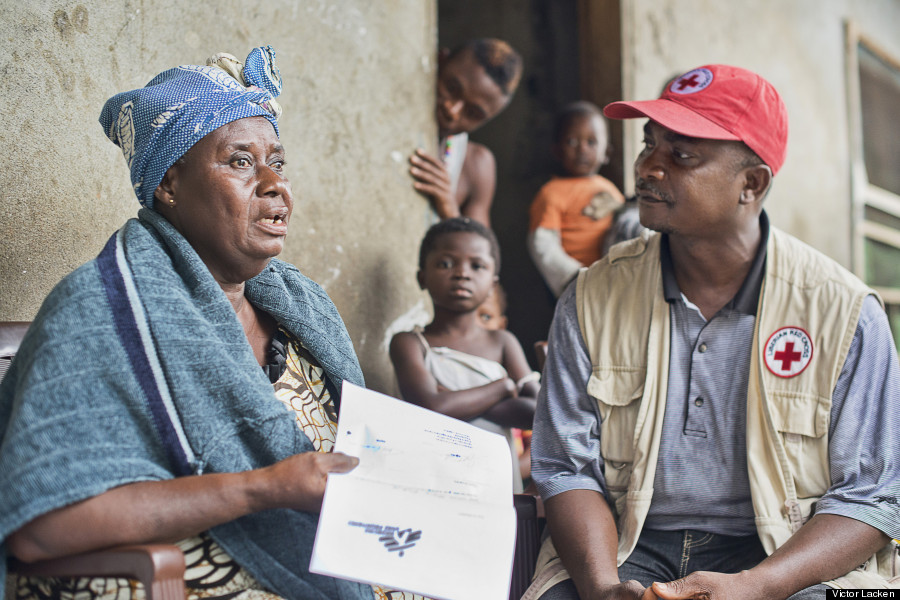
A Red Cross volunteer provides psychosocial support to Ebola survivor Mary Perkins in the Paynesville district of Monrovia. The Liberian Red Cross provides psychosocial support counseling to people affected by the current Ebola epidemic that has claimed the lives of more than 1,300 people in Liberia.
What does the American public most need to understand about this outbreak?
What people need to know is that Ebola is containable. It's not curable, but it's containable. What the system needs is health workers and health facilities. That's the problem -- the health system here was poor to begin with. So it's overwhelmed very easily, and it's overwhelmed now. Other problems like malaria, cholera, general childbirth issues, people can't get [help for] those. The American public needs to know that we need doctors, health workers, nurses, medical care and treatment centers.
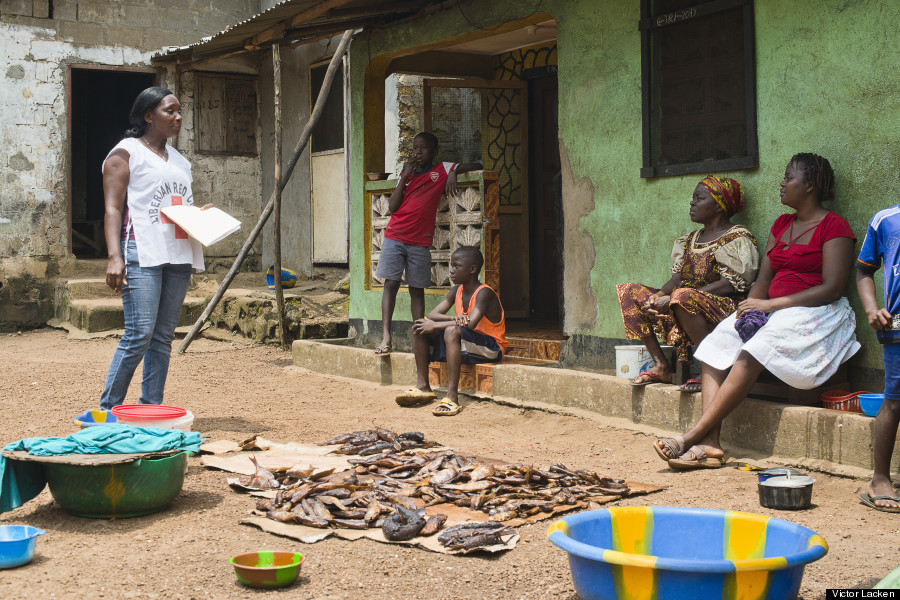
Liberian Red Cross volunteer and Contact Tracer Kebbeh Beetalks to members of the Pipeline community in Paynesville, near Monrovia. Contact tracing, where volunteers identify and monitor people who have been in contact who those infected with the Ebola virus, is a key plank in the Red Cross strategy to combat the spread of the disease.
It'll get worse before it gets better. And the worse it gets, the harder it becomes, since it increases at such a fast rate -- you have one infected person, and he can go and infect two other people.

Liberian Red Cross volunteer and Social Mobilization team leader Frederick Settro tells members of the Crab Hole community in Monrovia about the dangers of the Ebola virus and how they can minimize the risks to their health. Social mobilization is a key plank in the Red Cross strategy to combat the spread of Ebola.
This interview has been edited for length and clarity. Additional research by Damon Dahlen.
This story is part of "Inside an Outbreak," a HuffPost series taking you to the front lines of the world's worst Ebola outbreak. For more information on how you can help, visit HuffPost Impact.
More from the series:
These Photos Reveal The Grim Reality Of Ebola In Sierra Leone
Experiences From 7 CDC Workers At The Front Lines Of The Ebola Crisis
'Ebola Is A Shadow, An Inescapable Shadow -- And It Doesn't Seem To Move'
Ebola In Sierra Leone: 'It Reminded Me Of A Conflict Zone'
The Heartbreaking, Uncensored Reality Of Covering Ebola As A Journalist
What It's Like To Be An Ebola Survivor In Sierra Leone
Following An Ebola Burial Team In Liberia (PHOTOS)
